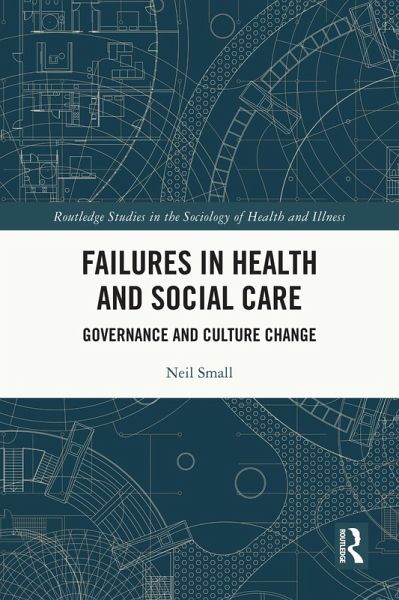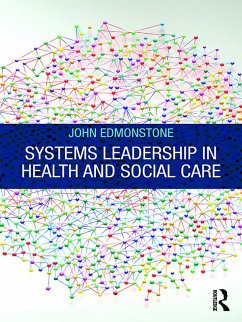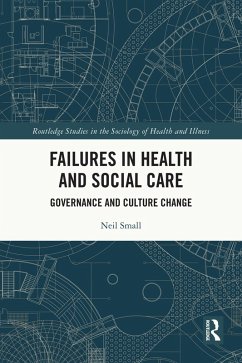
Failures in Health and Social Care (eBook, ePUB)
Governance and Culture Change
Versandkostenfrei!
Sofort per Download lieferbar
39,95 €
inkl. MwSt.
Weitere Ausgaben:

PAYBACK Punkte
20 °P sammeln!
This thought-provoking book examines breakdowns in the quality of health and social care over the past decade, exploring governance failures and the challenges of achieving lasting change.Failures in care have been manifest across many different settings. Drawing on examples from care of older people and end-of-life care, as well as from learning disabilities, mental health, maternity care and services for vulnerable children, Neil Small shows that the same sorts of problems are evident across these settings and that they are occurring up to the present day. Discussing culture change alongside...
This thought-provoking book examines breakdowns in the quality of health and social care over the past decade, exploring governance failures and the challenges of achieving lasting change.
Failures in care have been manifest across many different settings. Drawing on examples from care of older people and end-of-life care, as well as from learning disabilities, mental health, maternity care and services for vulnerable children, Neil Small shows that the same sorts of problems are evident across these settings and that they are occurring up to the present day. Discussing culture change alongside levels of funding and the impact of prevailing political and economic orthodoxies, and through the lens of shifts of trust in society, this book argues that the concept of culture must be cast much wider than organisational and professional cultures if change is to be secured.
This book engages with how to improve quality of care in the NHS and welfare systems more generally. Its case examples are from the UK but the issues of governance, culture change and shifts in the social contract that failures illuminate have an international relevance. It is important reading for those with an interest in health, social care, political science, and sociology.
Failures in care have been manifest across many different settings. Drawing on examples from care of older people and end-of-life care, as well as from learning disabilities, mental health, maternity care and services for vulnerable children, Neil Small shows that the same sorts of problems are evident across these settings and that they are occurring up to the present day. Discussing culture change alongside levels of funding and the impact of prevailing political and economic orthodoxies, and through the lens of shifts of trust in society, this book argues that the concept of culture must be cast much wider than organisational and professional cultures if change is to be secured.
This book engages with how to improve quality of care in the NHS and welfare systems more generally. Its case examples are from the UK but the issues of governance, culture change and shifts in the social contract that failures illuminate have an international relevance. It is important reading for those with an interest in health, social care, political science, and sociology.
Dieser Download kann aus rechtlichen Gründen nur mit Rechnungsadresse in A, B, BG, CY, CZ, D, DK, EW, E, FIN, F, GR, HR, H, IRL, I, LT, L, LR, M, NL, PL, P, R, S, SLO, SK ausgeliefert werden.













